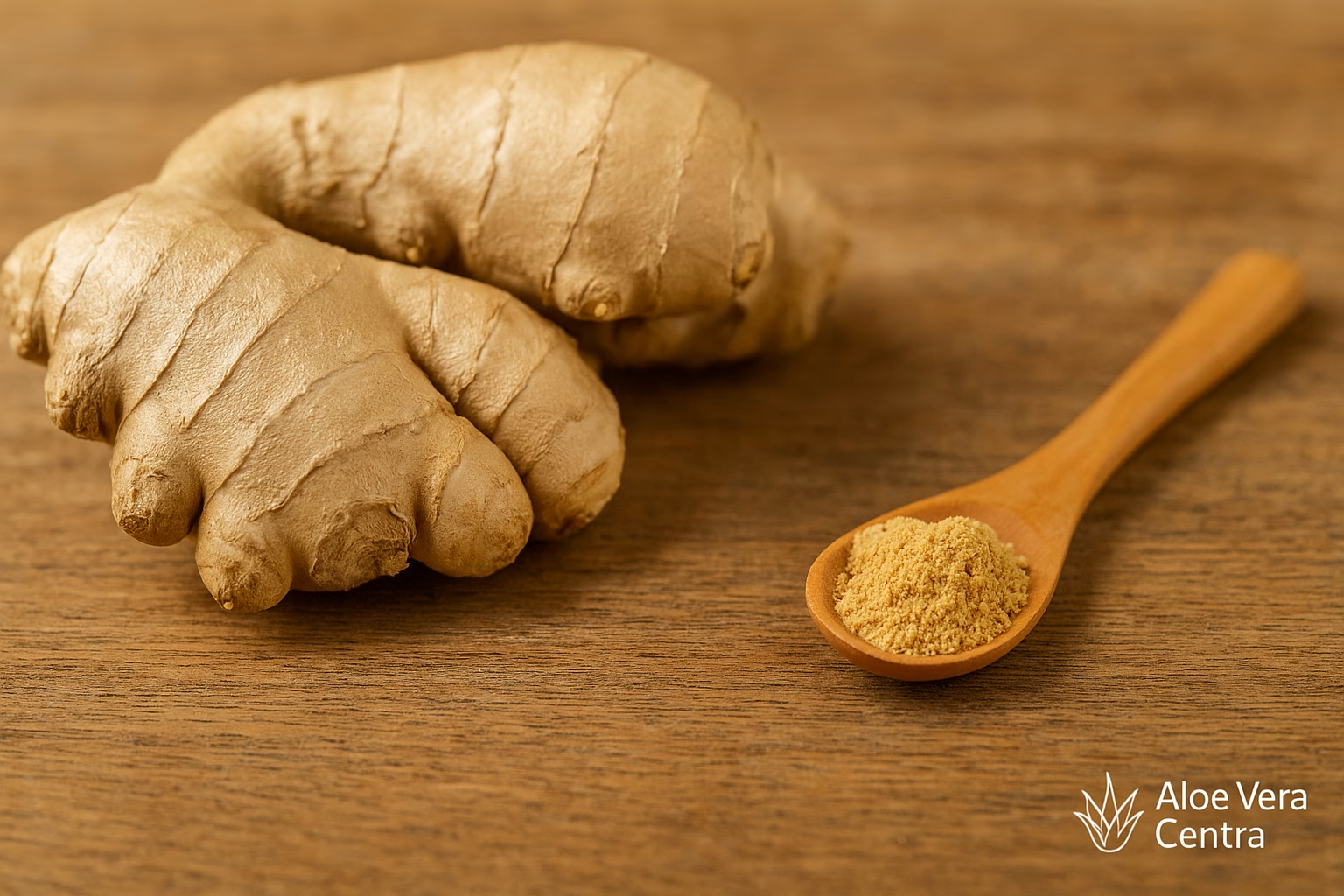
Hashimoto’s symptoms – 15 early signs and how to alleviate them
Hashimoto’s symptoms – 15 early signs and how to relieve them naturally
Imagine waking up exhausted every morning, even though you slept for eight hours. You blame stress at work or simply a “slow metabolism,” but the fatigue doesn’t go away. Years go by, and you still feel sluggish, struggle with a few extra pounds, and are constantly cold. But wait… What if these seemingly everyday problems are actually the first alarms that your immune system is attacking your own thyroid? That’s exactly what happens with Hashimoto’s disease – an autoimmune disorder that can go undetected for years. Below, find out how to recognize the early symptoms of Hashimoto’s thyroiditis, why this disease occurs, and what natural strategies can help you maintain energy, a healthy weight, and hormonal balance. Let’s get started and learn the details about this insidious disease and how to keep it under control.
What is Hashimoto’s thyroiditis and why does it occur?
Hashimoto’s thyroiditis is a chronic autoimmune inflammation of the thyroid gland. This means that your immune system mistakenly creates antibodies (most often anti-TPO and anti-Tg) that gradually attack and destroy thyroid tissue. The result? The thyroid gland slowly loses function. Unlike some other thyroid diseases, Hashimoto’s most often causes hypothyroidism – a slow thyroid function and hormone deficiency, with the associated symptoms that we will describe below.
Here’s the thing: experts today recognize several main triggers for the development of Hashimoto’s disease:
- Genetic predisposition: if you have autoimmune diseases in your family, your risk is many times higher (certain inherited HLA-DR “alleles” can increase the risk of the disease up to five times!).
- Micronutrient deficiencies: primarily selenium and vitamin D, which help regulate the immune response. (According to a 2024 systematic review, vitamin D3 can balance the immune response in Hashimoto’s disease, while a meta-analysis of 35 studies showed that selenium supplementation lowers TSH and anti-TPO antibodies .)
- Gut microbiota dysbiosis: An imbalance of “good” and “bad” bacteria in the gut (so-called leaky gut syndrome) can trigger chronic inflammation that damages the thyroid gland.
- Chronic stress: long-term elevated cortisol – the “stress hormone” (especially when it is associated with chronic lack of sleep) – disrupts the work of immune cells and can trigger an autoimmune reaction.
It is also important to note that Hashimoto’s often occurs along with other health conditions. For example, people with Hashimoto’s thyroiditis are at increased risk for other autoimmune diseases – it is often associated with celiac disease or psoriasis. If you suspect you also have celiac disease, check out the symptoms of celiac disease . If you are interested in a natural plan to calm psoriasis, see Psoriasis – A Natural Plan to Calm It Down .
Hashimoto’s symptoms that should prompt you to get checked out
The symptoms of Hashimoto’s disease develop slowly and can overlap with other conditions for years or be mistaken for “normal” signs of aging and stress. However, if you experience a combination of several of the symptoms listed below, it’s time to see an endocrinologist:
- Chronic fatigue and sleepiness: the feeling that no matter how much you sleep, you can never get enough sleep.
- Unexplained weight gain: pounds pile on despite the same diet and activity level.
- Constant sensitivity to cold: cold hands and feet or a feeling of being cold even when others are comfortably warm.
- Dry, flaky skin and brittle nails: the skin loses moisture and becomes rough, the nails peel and crack.
- Increased hair loss: noticeable thinning of hair, especially at the front of the scalp.
- Slow digestion: slow bowel movement (weak peristalsis) and frequent constipation.
- Hoarseness or “lumps” in the throat: changes in the voice or a feeling of pressure in the neck due to an enlarged thyroid gland (goiter).
- Irregular menstrual cycle: irregular menstruation accompanied by more pronounced PMS symptoms.
- Decreased libido and apathy: a decrease in sexual desire, accompanied by a general lack of energy and motivation.
- Elevated cholesterol: increased cholesterol levels in the blood, despite an unchanged diet.
- Mild facial puffiness: a morning “puffy” appearance of the face, especially around the eyes.
- “Brain fog”: difficulty with concentration, memory, and clarity of thought.
- Muscle and joint pain : unexplained joint pain and stiffness, often accompanied by general muscle weakness.
- Slow pulse: slow heart rate (bradycardia) – less than 60 beats per minute at rest.
- Difficulty losing weight: You fail to lose weight or even continue to gain weight despite dieting and exercising.
Did you recognize yourself in some of these items? Don’t worry – early intervention can make a big difference. The key is to act quickly. Below, we explain how Hashimoto’s disease is diagnosed and what you can do to naturally support your thyroid and relieve symptoms.
How is Hashimoto’s disease diagnosed?
The standard diagnostic protocol for Hashimoto’s thyroiditis usually includes:
- Laboratory tests: levels of TSH, free T4 and T3 hormones are checked, as well as the titer of anti-TPO and anti-Tg antibodies.
- Thyroid ultrasound: An ultrasound examination shows the size, structure, and possible inflammatory changes in the thyroid gland.
- Thyroid scintigraphy: a nuclear test (less commonly used) that can help assess the function and display active gland tissue.
Note: In Hashimoto’s hypothyroidism, TSH levels are usually elevated due to an underactive thyroid. Conversely, a low TSH is often indicative of an overactive thyroid (hyperthyroidism). In other words, Hashimoto’s and hyperthyroidism are opposite thyroid disorders, so it is important to distinguish between the symptoms of each condition.
It’s important to distinguish Hashimoto’s from other autoimmune disorders – check out our comprehensive guide to autoimmune diseases to understand the bigger picture of immune disorders. Also, if you have a family history of rheumatoid arthritis or another autoimmune disease, your risk of Hashimoto’s is higher, so getting tested early is crucial.
Natural thyroid support: 6 key pillars
1. Optimize your selenium and vitamin D intake
We have already mentioned how important selenium and vitamin D are for normal immune function. Numerous studies confirm: selenium supplementation (usual dose around 200 µg per day) can reduce the level of autoantibodies, while vitamin D (2000-4000 IU per day) improves the balance of T-regulatory lymphocytes that “inhibit” the autoimmune reaction. For complete synergy, consider the supplement Forever Immublend , which combines vitamin D3, zinc and selenium and medicinal mushroom extracts in one tablet – a powerful formula for supporting immunity.
2. Gut microbiota = immune center
Did you know that 70% of the immune system is located in the gut? 🦠 It’s no surprise that the health of your gut microbiota directly affects autoimmune diseases. Research published in 2024 suggests that high-quality probiotics can slightly lower levels of harmful antibodies and improve the overall condition of people with Hashimoto’s. A daily capsule of Forever Active Pro B contains 8 billion beneficial bacteria from six clinically tested strains, and also serves as a “fuel” for the production of short-chain fatty acids that calm inflammation in the gut. (Want to further improve your diet for a healthier gut? Learn how probiotics and a healthy diet can go hand in hand .)
3. Omega-3 fatty acids as an anti-inflammatory shield
Omega-3 fatty acids (EPA and DHA) are powerful allies in the fight against inflammation because they reduce the activation of the NF-κB inflammatory pathway. One capsule of Forever Arctic Sea Omega contains an ideal EPA:DHA ratio of 2:1 – a combination that is clinically most beneficial for lowering inflammatory markers such as CRP.
4. Aloe vera – an adaptogen for the adrenal glands and intestines
Stabilized Forever Aloe Vera Gel is a true “multitasker” among supplements. It is rich in the polysaccharide acemannan, which helps heal the intestinal lining and thus reduces silent inflammation in the body. In addition, aloe vera acts as an adaptogen – helping your adrenal glands cope with stress more easily. Many of our readers have already included 120 ml of aloe vera on an empty stomach in their morning routine to soothe digestion and support immunity.
5. Turmeric + black pepper = powerful antioxidant
The spice turmeric has long been known as a natural anti-inflammatory agent thanks to its active ingredients curcuminoids. However, did you know that a pinch of black pepper multiplies its effects? Namely, piperine from pepper increases the absorption of curcumin by as much as 2000%! In practice, this means that it is good to combine turmeric and pepper in meals or drinks. (Learn more about the correct dosage in the article Turmeric and Curcumin – How to Suppress Inflammation .)
6. Stress management with ashwagandha
Sounds too good to be true? Keep reading… The powerful herb ashwagandha is an adaptogen and helps the body adapt to stress more easily. It has been clinically shown to reduce cortisol levels (the stress hormone) and improve sleep quality, which indirectly gives the thyroid a boost. Many people with Hashimoto’s disease use ashwagandha for better sleep and more energy – of course, with the prior advice of a doctor, especially if there is also hyperthyroidism.
A practical 7-day plan to relieve symptoms
- Every morning (on an empty stomach): drink ~100 ml of Aloe Vera Gel with a glass of warm water with lemon.
- Breakfast: prepare a smoothie with a handful of berries, spinach, a tablespoon of chia seeds and a pinch of turmeric (add a little fresh ginger if desired).
- After breakfast: take your daily dose of supplements: Forever Immublend (1 tablet) and Forever Active Pro B (1 capsule).
- Lunch: Eat a balanced meal like grilled salmon with quinoa and an avocado and vegetable salad.
- Afternoon: take 2 Forever Arctic Sea Omega capsules (anti-inflammatory dose) and take 10 minutes to relax – light meditation or breathing exercises.
- Dinner: enjoy warm sweet potato and ginger soup, with a side of dark green vegetables in olive oil.
- Before bed: take ~300 mg of Ashwagandha extract and take 5 minutes for deep, calming breathing.
Not sure where to start? No problem – save time and use our AI advisor who can suggest a personalized plan for you within a minute!
Frequently asked questions
How quickly can I expect improvement in Hashimoto’s disease symptoms?
Every body is different, but many sufferers notice the first improvements within a few weeks of starting therapy and making lifestyle changes. Laboratory indicators such as TSH and antibodies often begin to improve within 3–6 months with a combination of medications (e.g. levothyroxine), an adjusted diet, and targeted nutritional supplements.
Can natural supplements replace thyroid hormone therapy (e.g. Euthyrox)?
No. Supplements are intended to support, but they cannot replace, prescribed thyroid hormone therapy. If your doctor has prescribed a medication (such as levothyroxine), do not stop taking it on your own. Natural supplements can help improve your overall health and immunity, but always consult your doctor before making any changes to your treatment.
Should gluten be eliminated from the diet in Hashimoto’s disease?
Not everyone with Hashimoto’s necessarily needs to cut out gluten completely, but it’s worth considering an elimination diet. People with Hashimoto’s thyroiditis are also more likely to be gluten intolerant and often have elevated antibodies to gluten. Try cutting out gluten for 4–6 weeks – if you notice improvements in your digestion, energy, or mood, it may be worth limiting gluten in your diet long-term.
Can I take ashwagandha if I also have hyperthyroidism?
Ashwagandha is generally safe and beneficial for reducing stress, but caution is advised for people with hyperthyroidism (an overactive thyroid gland). Since ashwagandha may mildly stimulate the thyroid, be sure to consult an endocrinologist before taking it if you have Graves’ disease or other forms of hyperthyroidism.
Conclusion: take the first step today
Understanding your own symptoms and needs is the first step to better health. Hashimoto’s disease can be challenging, but with a good plan, it can be managed. Start with small changes: optimize your selenium and vitamin D intake, include probiotics and omega-3 fatty acids in your diet, and adopt stress management techniques. Whether it’s Hashimoto’s or other autoimmune conditions like celiac disease or psoriasis, the key to success is consistency and a holistic approach – one step at a time. Don’t let your symptoms discourage you – with perseverance and the right plan, you can gradually return to energy and a quality life. And if you need extra motivation, we have prepared a special offer for you: get a 15% discount on your starter pack of natural supplements and start your journey to feeling better today!
Note: This article is for educational purposes only and is not a substitute for professional medical advice. For specific diagnosis and treatment, please consult your doctor.








